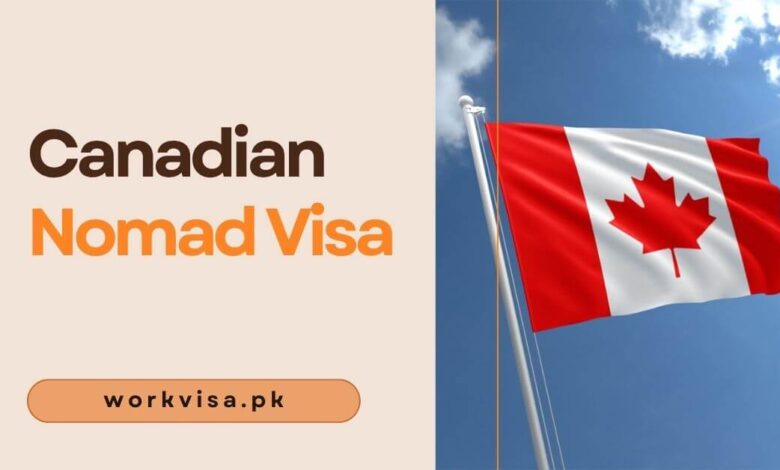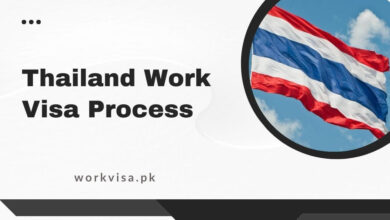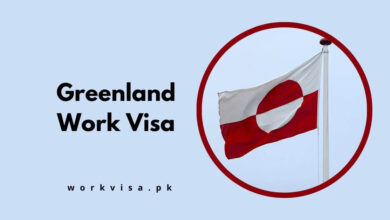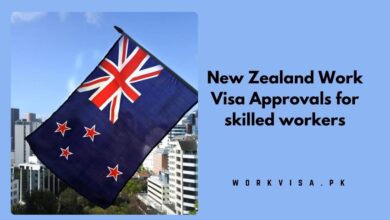Canadian Nomad Visa 2025 – Check Here

Canada has been a fantasy come true for a long time for a variety of professionals and visitors. This trend has been furthered by the introduction of the Nomad Visa, a new addition that enables digital nomads to temporarily reside and work in Canada while exploring options for permanent residency. Currently, Canada is in the process of establishing itself as the premiere candidate for remote workers who desire a combination of professional work and luxurious living.
Check Also: Visa Sponsorship Fruit Picker Jobs in Canada
What is the Canadian Nomad Visa 2025?
In contrast to the majority of work visas, the Nomad Visa enables the remote worker, freelancer, or digital entrepreneur to remain in the country for a period of six months or less while continuing to work for clients or employers abroad. Consequently, it eliminates the necessity of residing in a single location for extended periods and provides individuals with the opportunity to experience a distinct region of the globe.
Paths to the Permanent Residency
Initially, the Nomad Visa is valid for six months; however, it may be extended to a more permanent status at a later date. The current risks of cord-cutting may prompt thousands of nomads who are enamored with the Canadian lifestyle to pursue one of the following routes for long-term stay or permanent residency:
- Express Entry is available to qualified laborers who satisfy the Comprehensive Ranking System (CRS) criteria.
- Provincial Nominee Programs (PNPs): Provinces will nominate candidates who possess specific in-demand talents.
- Startup Visa Program: This program is highly advantageous for applicants who possess innovative business concepts and wish to establish permanent residence.
Eligibility Criteria:
The following formal criteria are required of the petitioners in order to qualify for the Nomad Visa for Canada:
- Remote Employment: Evidence of freelance work or employment with a foreign company located outside of Canada
- They must possess an adequate amount of money to sustain themselves in Canada.
- All necessary travel documents are required: Passport and all necessary visas for travel.
Benefits:
- Extended Stay in a Premier Destination: Typically, digital nomads can extend their stay in one of the most habitable countries in the world, with durations spanning from six months to one year or more.
- Legal Capacity to Work Remotely: Digital nomads can legally work for foreign companies while residing in Canada by providing the necessary documentation, which ensures compliance with immigration and labor laws.
- Access to Infrastructure of the Highest Quality: Canada’s infrastructure is robust, featuring modern amenities, coworking spaces, and reliable high-speed internet, ensuring that remote work experiences are seamless..
- Quality of Life: Canada’s stable and pleasant living environment is ideal for digital nomads, as it is ranked highly in safety, healthcare, and overall quality of life.
- Chance to Investigate a Wide Range of Landscapes: Digital nomads have the opportunity to explore the diverse geography of Canada, which includes natural marvels such as the Northern Lights and Banff National Park, as well as vibrant communities such as Toronto, Vancouver, and Montreal.
- Opportunities for Networking: Being in Canada enables digital nomads to establish connections with professionals, entrepreneurs, and businesses in prospering sectors, including finance, technology, and the creative industries.
- Multilingual and Cultural Setting: The bilingual framework (English and French) and multicultural society of Canada offer digital nomads the opportunity to acquire new languages and immerse themselves in a new culture.
- Policies that are Family-Friendly: Certain visa alternatives may enable digital nomads to transport family members, thereby guaranteeing that their dependents also have access to Canada’s exceptional educational, healthcare, and recreational resources.
- Healthcare Accessibility: Although the majority of healthcare services are provided at no cost to inhabitants, certain visa holders are eligible for private health insurance, which guarantees them access to high-quality medical care during their visit.
- Work-Life Balance: Canada’s emphasis on work-life balance enables migrants to combine productivity with relaxation, thereby simplifying the process of engaging in cultural activities and outdoor activities.
How you Process-Most Nomad Visas
- Application Preparation: A Valid Passport, Proof of Remote Work (to be submitted), and Affordability.
- Online Application Submission: The application portal is direct, as it is conducted online through the official Canadian immigration portal.
- Approval Waiting Time: Processing times are subject to variation; however, they are typically shorter than those of standard visas.
- Your Preparation for the Visit: Today, you are that much closer to preparing for your trip to Canada.
Conclusion
Canada’s Nomad Visa is a reasonable assurance for freelancers and remote workers who desire a novel experience, albeit a transitory one, while residing in one of the most habitable countries in the world. This visa is not only an invitation to reside and work in Canada, but also a means of establishing a future in one of the most inclusive and opportunity-rich countries in the world, due to the long-term residency potential that is incorporated into it. The Canadian Nomad Visa presents new opportunities for Canadians to hold a distinctive experience for a period of six months or indefinitely.
Frequently Asked Questions:
-
Is there a digital nomad visa in Canada?
Yes, you can move to Canada with a remote job, provided you have a temporary resident visa, such as a visitor visa (nomad visa) or work permit. The digital nomad visa in Canada is available to people from many different countries, including India.
-
What is the digital nomad visa for Canada?
A visa from a TRV non-visa-exempt country is required for the state’s citizens who wish to visit Canada as digital nomads. Required steps include: Complete Application Form. Form IMM 5257 must clearly convey intentions to work remotely under visitor status and planned departure date.
-
Do digital nomads pay tax in Canada?
Even if you spend the majority of your time outside of Canada, you must file an annual tax return if you are considered a resident of the country. Here are some key points to remember: Declare all income: As a resident, you must report all income, including foreign income, on your Canadian tax return.




